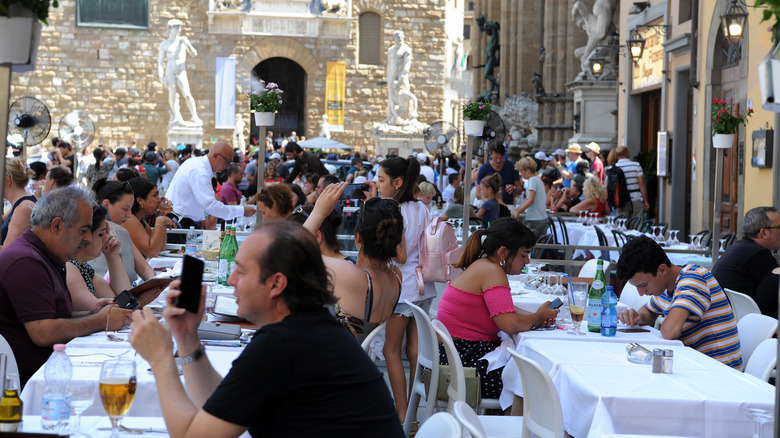Travel Guides International Travel Etiquette
Margherita Marullo
You’ve just finished your meal in an expensive restaurant in NYC. You notice the bill has an automatic gratuity of 20% added to the subtotal. However, you’re feeling extra generous because the service was impeccable, and the food was delicious: Leaving a bit of cash on the table as an additional tip, you smile knowing the server will be pleased.
Fast-forward a month later and you find yourself dining in a beautiful, outdoor restaurant in the heart of Rome, Italy. Yet again, the service and meal were both exceptional. The server brings you the conto (bill), and as you scan down the list of charges, you notice the automatic gratuity charge you’re accustomed to has not been added to the list of items. Perplexed, you wonder if restaurants in Italy do as American restaurants do when it comes to tips. However, before you pull out your wallet to leave a generous tip for your Italian waiter, there are some things you should know about tipping in Italy while you’re visiting this beautiful country.
Why the cultures and traditions of Italy differ from America

Laura Lezza/Getty Images
Italian culture is known for its stunning art and architecture, beautiful music, superb wine, and delicious food made from the simplest ingredients. Italian traditions surrounding them are equally impressive, particularly when it comes to eating and dining in Italy. You see, in Italy, you won’t find over-processed foods as you would in the United States. Rather, everything is made by hand. From appetizers to main courses, and even desserts: Creating delicious delicacies in Italy is an art in and of itself, and Italians treasure each minute of preparing their gastronomical masterpieces by hand, and feeding those hungry for their food.
This can be said for restaurants in Italy as well. Given that, serving these edible art pieces to customers — whether they’re residents of Bella Italia (Beautiful Italy) or tourists on vacation — evokes a sense of pride and gratitude from the chefs preparing the food to the servers delivering them to your table. Their only wish is that the meal they have prepared and brought to you with their own hands tantalizes your taste buds, and is appreciated for its simple, natural ingredients and graceful preparation.
To tip or not to tip: That is the question

mastermilmar/Shutterstock
There is much insight on this topic throughout the internet, and take it from those who have made the jump and moved from the U.S. to Italy, immersing themselves daily in the culture and traditions of the locals: The answer to that is, no.
There are two reasons why tipping is not a requirement, or expected in restaurants. The first is that Italians love preparing and serving meals they live for creating: It is their passion, as Visit Italy defines, and they relish sharing that passion with everyone. The second reason is because in Italy — unlike the servers in the United States — waiters and waitresses are paid a living wage per month, as reported by Salary Explorer, and do not rely on tips to make a living.
If while visiting Italy, you’re staying at a hotel, bed and breakfast, or agriturismo, leaving a small tip for staff is always welcomed and appreciated, but again not expected or necessary. And, while you may be accustomed to giving, and expected to leave tips in the United States, the mindset in Italy is the complete opposite, and dare we say pretty much throughout the whole of Europe. However, if you feel inclined to leave a small tip while on your travels to Italy, Italians will not think it rude: They will be grateful that you appreciate them, their food, and the superb service they provided.

